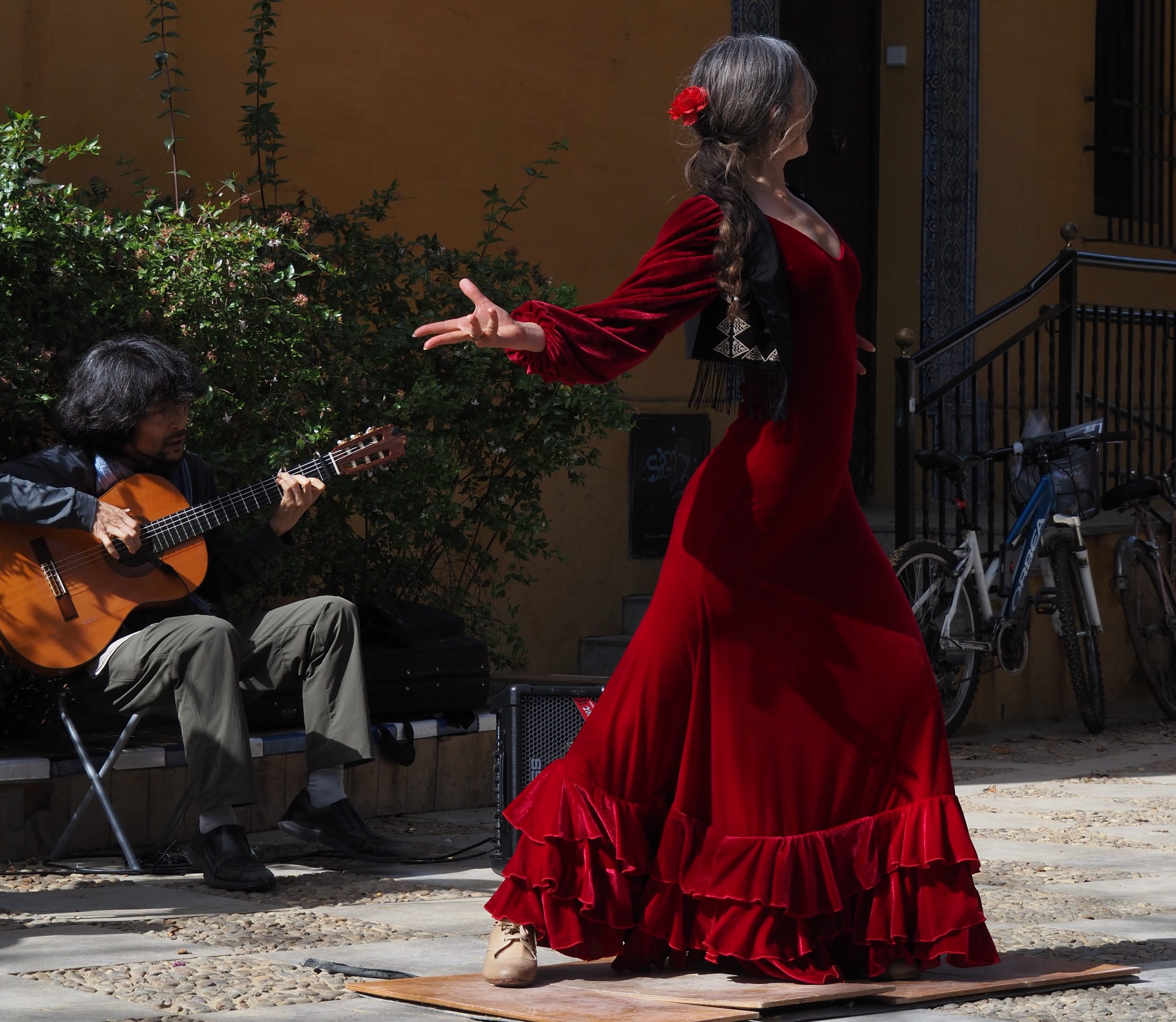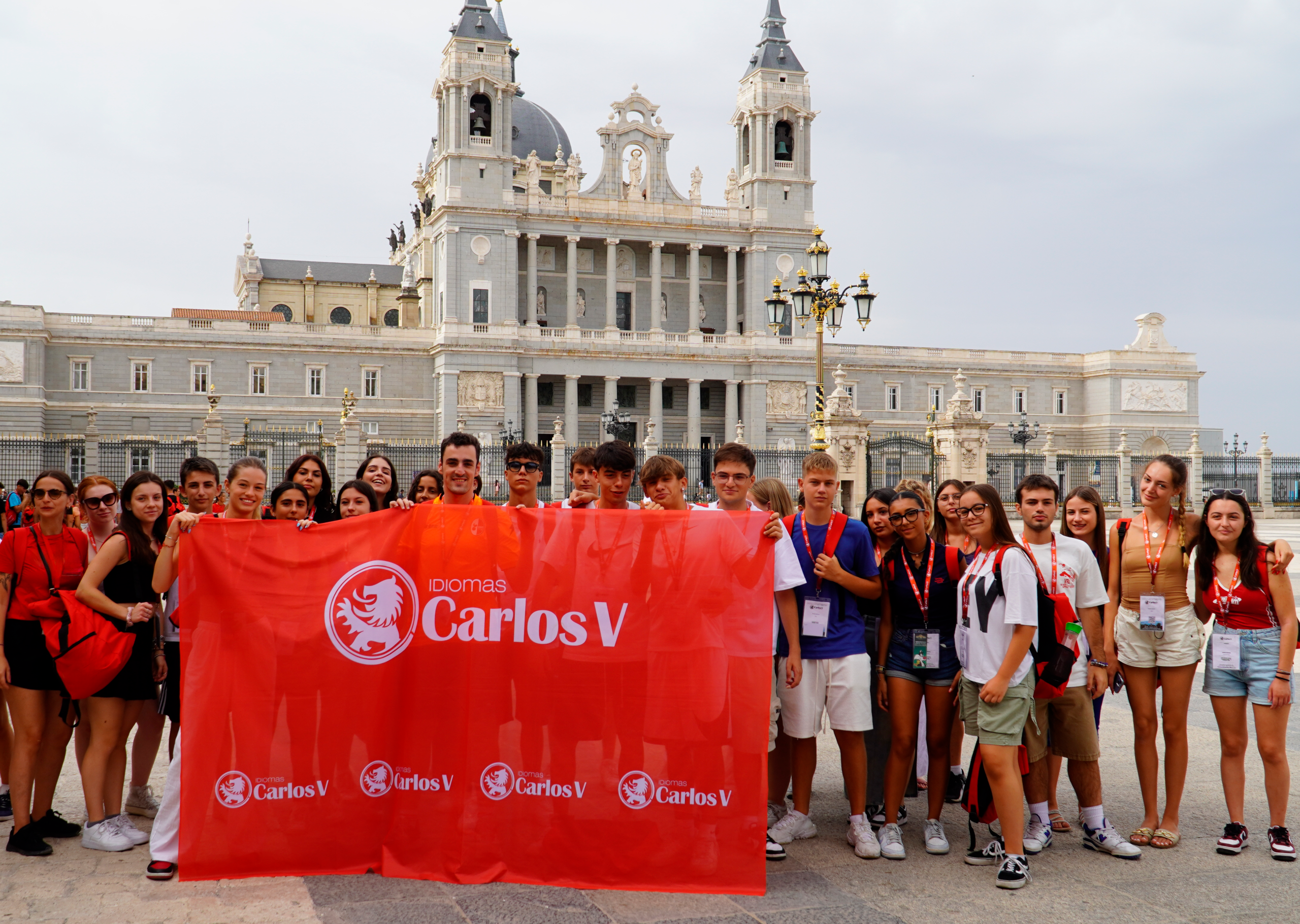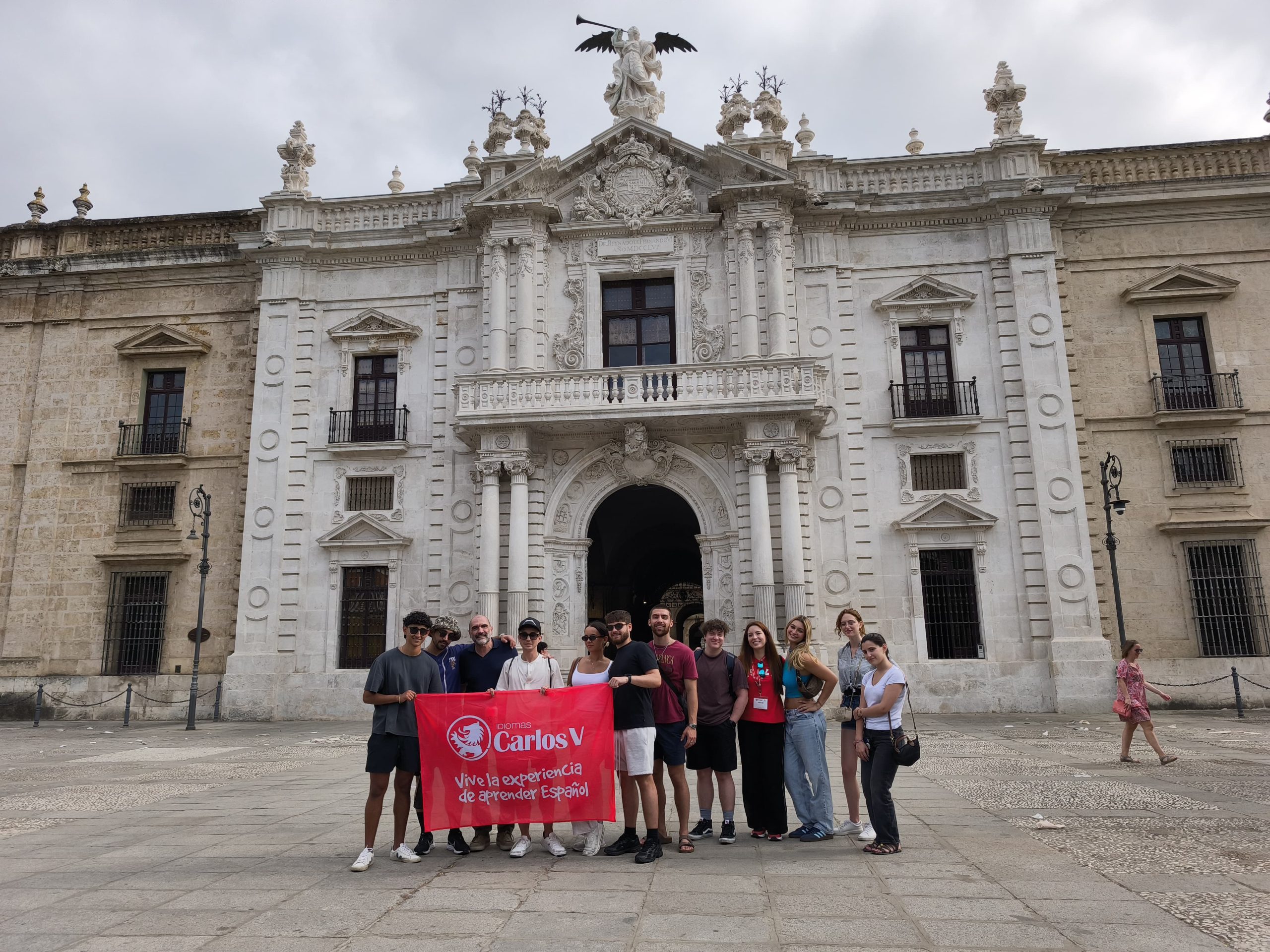Índice de contenidos
The “palos” are the different styles or forms of expression within flamenco. Each has its own rhythm (compás), melodic structure, and emotional tone.
Some palos are festive, while others are introspective and profound — but they all share a common root: Andalusia. These musical forms reflect centuries of history and the rich mix of Gypsy, Arab, Jewish, and Castilian influences.
Main Flamenco Palos
1. Soleá
Emotionally deep, solemn, and melancholic.
Characterized by a 12-beat rhythm and a slow tempo.
A typical example of cante jondo (deep song).
2. Alegrías
A bright, cheerful style native to Cádiz.
Perfect for traditional flamenco dance with the bata de cola (long train skirt).
Structured 12-beat rhythm.
3. Bulerías
Rhythmic, improvised, and festive.
12-beat rhythm with shifting accents.
Commonly performed in flamenco parties (juergas).
4. Flamenco Tangos
Not to be confused with Argentine tango.
They have a steady 4/4 rhythm and are ideal for beginner flamenco dancers.
5. Fandangos
There are many regional versions: from Huelva, Málaga, or fandangos naturales.
They can be sung freely or with a marked rhythm.
In some cases, they evolve into more modern palos.
Flamenco in Our Immersion Programs
At Carlos V Education, we don’t just teach Spanish:
we offer real cultural experiences.
Our students can:
· Join flamenco dance workshops
· Attend tablao flamenco performances and live shows
Learning about flamenco — and especially its palos — gives students a deeper understanding of Spanish identity, history, and artistic expression.
Ready to Live the Language?
The palos of flamenco are a direct path into the soul of Spain.
Understanding them not only enriches your Spanish learning journey — it allows you to feel the language with all your senses.
Want to learn Spanish and dive deeper into flamenco in Spain?
Explore our programs and discover how you can combine language learning with cultural immersion.
Contact us today and plan your next Spanish adventure.
We’d love to hear from you!







